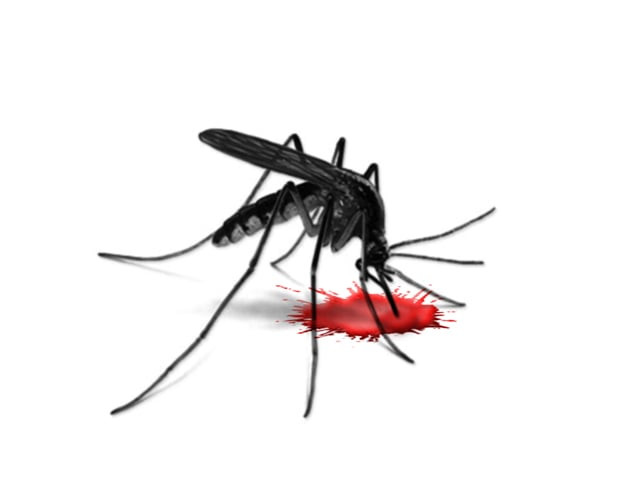Spiralling out of control
Country faces record number of dengue cases; ministry at a loss to check spread.

Even doctors at public hospitals that come under the ministry of health complain off the record that the government department should have taken appropriate preventive measures and launched awareness campaigns months before the present situation spiralled out of control.
According to the Ministry of Health Director General Dr Rasheed Jooma, at least 5,200 dengue positive cases have been reported this year in Pakistan. But he insisted that there was nothing to worry about and that the situation was well under control. “Call up the chief medical officer in Sri Lanka and he’ll tell you that they have 20,000 cases of dengue virus in their country. So at least we’re better off than them,” Jooma said.
Breakdown
In Sindh, a total of 3,297 suspected cases of dengue virus were reported, of which 1,819 turned out to be positive. Of these 1,819 cases, 1,762 were from Karachi.
According to the Punjab Health Department, 89 cases were reported in Lahore and 95 in the whole province on October 27. The total number of cases since January 2010 in Punjab, as of October 28, were 1,165, of which 1,002 were in Lahore.
In Khyber-Pakhtunkhwa, 317 suspected cases were reported this year, out of which 131 were positive.
In Azad Jammu and Kashmir, there were 55 suspected cases which resulted in the death of one patient.
No cases of dengue were reported from Balochistan. Jooma said it was possible that cases of dengue were going unreported because of the province’s weak health infrastructure.
At least 25 people have reportedly died in the country after contracting the virus, 16 of them in Sindh.
Expenses
Jinnah Postgraduate Medical Centre’s in charge of emergency services, Dr Seemi Jamali, said that she has observing a sharp rise in dengue cases each day. But not all patients require the mega platelet bags, which cost around Rs10, 000.
“You need mega platelet bags only in severe dengue cases in which bleeding occurs,” she said.
If a patient arrives during the initial stages of the fever, normal saline drops or intravenous drips are needed for treatment, she added.
The Rapid Kit Antigen test to detect dengue costs around Rs600. The government of Sindh has announced that all tests for dengue virus and their treatment at public hospitals would be borne by it, out of its grant of Rs10 million to tackle the outbreak.
Record-keeping
Records of dengue cases are being maintained hospital- and city-wise, however classifications based on gender, age groups and areas within the cities of each province, which could give important clues to researchers to determine from where the virus is originating, have not been made yet.
Dr Bushra stressed that in order to control the virus, proper analysis and studies need to be conducted. “Also, an attempt should be made to find out through such studies whether the fumigation process and mosquito repellants are effective,” she said, adding that international studies have shown that some types of mosquitoes are immune to such preventive measures.
When Jooma was asked whether any such studies were being carried out, he said “I am not familiar with what the entomologists in our country are doing in terms of studying how effective our repellants are against mosquitoes, but I am sure they must be doing something.”
Published in The Express Tribune, October 30th, 2010.



















COMMENTS
Comments are moderated and generally will be posted if they are on-topic and not abusive.
For more information, please see our Comments FAQ